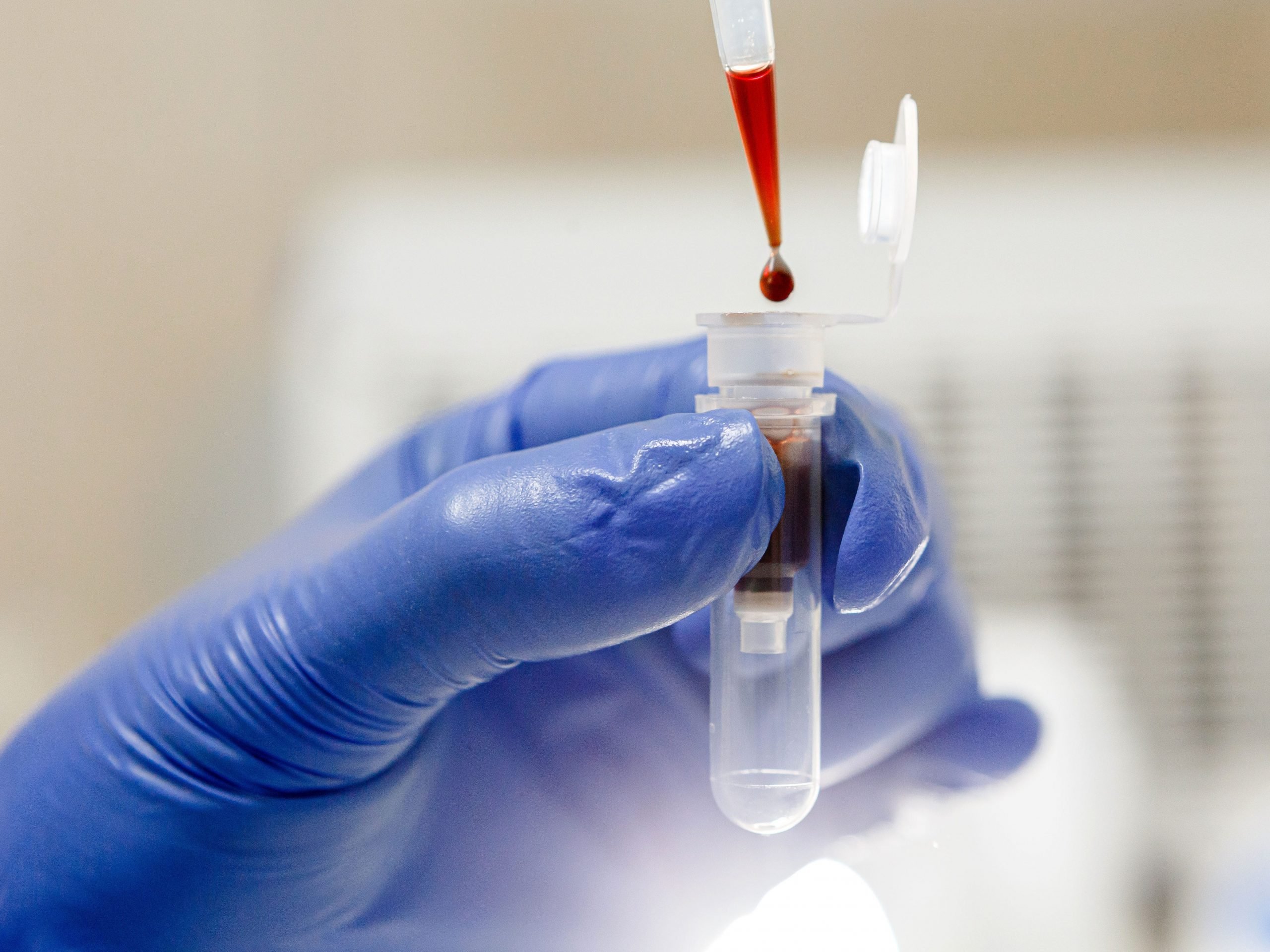
Serhii Hudak/ Ukrinform/Barcroft Media via Getty Images
- Two companies – Exact Sciences and Illumina – plan to have blood tests that detect cancer available by 2022.
- They have spent a combined $10.1 billion in M&A in the hopes of diagnosing cancer earlier.
- Experts say these tests still need to establish they can detect cancer and extend people's lives.
- This article is part of a series called "Future of Healthcare," which explores how technology is driving innovation in the development of healthcare.
Scarcely a day goes by when Kevin Conroy, the chief executive of cancer test manufacturer Exact Sciences, doesn't talk about colon cancer.
But last month, it hit closer to home when Conroy's brother-in-law died of the disease. By the time the cancer was apparent, the treatment options were limited.
Getting Americans to get routine screenings like colonoscopies has helped cut down deaths from colon cancer in the last couple of decades. The Cologuard test that Exact Sciences launched in 2014 has served as a next step, helping improve screening rates for Americans by four percentage points, according to Exact.
But only 38% of colon cancer cases are caught when the cancer is in its earliest, less deadly stages, according to the American Society of Clinical Oncology.
Two companies - Conroy's Exact Sciences and genetic sequencing giant Illumina - are hoping to make it easier to detect colon and around 50 other types of cancer, months or even years before doctors would see signs of the disease.
The former head of Illumina's blood testing business, Hans Bishop, had previously said these tests could help end deadly cancers.
Exact and Illumina spent a combined $10.1 billion over the last year acquiring the two startups developing tests that seek out microscopic signs of cancer in a person's blood.
Both blood tests will be available in the US next year. But the two firms behind the tests are still tweaking and testing their diagnostics, and experts say they need to prove that the tests can catch early cases of cancer and reduce death rates.
Both tests need to improve their rates of identifying cancer
Illumina and Exact's tests are part of a wave of "liquid biopsies'' informing cancer diagnosis and treatment.
Companies like Guardant Health and Foundation Medicine have launched tests that pull together genetic information found in the blood to help physicians decide which cancer treatments to use. Now, biotechs are looking to introduce blood tests that could diagnose cancer.
Providence Cancer Center Institute in Oregon is one of the first medical centers in the country to begin using the Illumina's test, known as Galleri. It looks for signs of a biological process called methylation, which indicates whether cancer genes have been turned on.
Testing has shown that the Galleri test has a 51.9% rate of locating cancers at any stage of development.
Early forms of Exact's CancerSEEK test, meanwhile, focused on finding traces of cancer DNA in the blood.
A 2016 trial of CancerSEEK found that it had a 27.1% rate of identifying any early stage cancer. Exact is currently in the process of adding a methylation component and machine learning tools, which Conroy expects will improve the test's performance.
So, neither test is foolproof. Providence Cancer Center pathologist Dr. Carlo Bifulco said that both need to get better able to pick up on early signs of cancer and locate where it is in the body.
Even if these tests can catch cancer earlier, we don't have strong data that starting treatment earlier allows people to live to older ages, Brigham and Women's Hospital's researcher Dr. H. Gilbert Welch wrote in an August op-ed in STAT. One theory he cites is that many cancers are thought to reflect the fact that the body's cells and immune system aren't working properly, making that person more susceptible to dying of any disease.
But Bifulco said these liquid biopsies could change his job dramatically. Evidence has shown that patient outcomes depend on how advanced their cancer is. And if you can catch cancer earlier, you might be able to avoid using chemotherapy, which can kill cancer cells but also cause nausea, fatigue, hair loss and potentially permanent damage to the heart and nerves in the hands and feet.
It could take more than a decade before these tests are available at your doctor's office
All evidence indicates that Exact and Illumina's tests won't immediately be embraced by the healthcare system.
Cologuard is the perfect example of that. The test has been on the market for six years and has a 90% rate of correctly identifying cancer, but is currently used by just 5% of the adults who could be routinely screened for colon cancer, according to an Exact Sciences investor call. Colonoscopies still account for the lion's share of screening.
The Cologuard test is currently recommended for people over the age of 45. Getting 20-year-olds, 30-year-olds and 40-year-olds to start routinely checking for cancer - and for the healthcare system to pay for that - will require strong evidence that it improves survival, according to experts. Purchasing a Galleri test each year for every American over 50 alone could cost $100 billion, Welch wrote in the op-ed.
It can take upwards of 15 years for insurers, medical standard-bearers and everyday doctors to embrace new ways of screening for cancer, Conroy noted. They want to see that it works, and results in people living longer and healthier lives, before upending the system.
"There will be a tipping point, like there frequently is for new technologies," he said. "The data is going to power a new motivation to screen."


